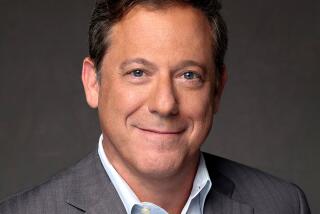Carl Icahn ends fight to seize control of Lions Gate
Carl Icahn has given up on his long and costly attempt to capture a Hollywood lion.
Ending a three-year battle that included a trio of lawsuits and tender offers, and nearly $25 million in legal costs for the shareholders of the Santa Monica studio, the corporate raider has reached a settlement with Lions Gate Entertainment Corp. to sell almost all of his 33% stake in the company.
Under a settlement announced Tuesday, Icahn agreed to sell 44.2 million shares for $7 each — 7% below the stock’s closing price Tuesday — and the two sides vowed to drop their pending litigation against each other. The deal ends long-standing questions in investors’ minds about whether Icahn, Lions Gate’s largest shareholder, would launch another hostile takeover bid for the company, best known for its Tyler Perry movie series and the acclaimed TV shows “Mad Men” and “Weeds.”
Icahn bought Lions Gate shares earlier this month, and a person close to the billionaire investor who was not authorized to speak said he had considered launching a fourth tender offer to buy more shares in hopes of gaining control of the company. His decision to instead retreat is a victory for the company’s chief executive, Jon Feltheimer, and Vice Chairman Michael Burns — executives Icahn has frequently criticized for alleged mismanagement — and is welcome news ahead of Lions Gate’s annual meeting Sept. 13.
Wall Street analysts said they were unclear why Icahn decided to give up on his long-running mission to seize control of Lions Gate and oust its management team. Settlement talks began last week and continued through the weekend, said people involved in the matter who were not authorized to speak.
In an interview Tuesday, Icahn would only say, “We didn’t lose [money] on it, but for all the effort we have made, going into another fight wasn’t worth it.” He pointed out that his investment fund has several much bigger efforts on its agenda, including a $10.5-billion takeover attempt at bleach maker Clorox Co.
Since 2008, Icahn had argued that Feltheimer and Burns were spending too much money on overhead and film production and criticized aborted attempts they made to acquire or merge with other companies. Negotiations in past years to reach a detente that would have given Icahn several board seats, including one for his son Brett, fell apart over disagreements on how much power his representatives would have.
Last year Icahn launched two unsuccessful bids to buy enough Lions Gate stock to take control of the company. When those efforts failed, he ran a slate of five board nominees to represent his interests and oppose those of management. None was elected.
That left him in the awkward position of owning one-third of the company with virtually no control over decision making. Icahn, who would not have been able to sell 44 million shares at the current trading price, said he would break even on his investment with the $309.4 million he received for his stock.
According to the agreement filed Tuesday with the Securities and Exchange Commission, Mark Rachesky, Lions Gate’s second-largest shareholder with a 29% stake, will acquire an additional 11 million shares. That will bring his holdings up to 37%, making him the company’s largest shareholder.
Lions Gate itself will buy the same number of shares.
The company has 35 business days to find buyers for Icahn’s remaining 22.1 million shares. The company’s other large shareholders, including Gordon Crawford and John Kornitzer, are likely candidates to buy some of the shares.
Icahn will retain about 1 million shares for tax purposes. In addition, he agreed to abstain from voting his shares for board nominees at the upcoming annual meeting.
Lions Gate agreed to drop a pending lawsuit against Icahn in New York. Icahn will not pursue further appeals in lawsuits he has lost against the studio in New York and British Columbia, Canada.
Analysts said the agreement was positive for Lions Gate because it would allow management to focus resources and investors’ attention on the company’s core business.
“It wouldn’t have been my first choice to see them lay out capital for this, but it’s probably the best conclusion we could have hoped for, given the situation,” said Marla Backer, an analyst at Hudson Square Research.
Doug Creutz, a vice president at Cowen Group, said the deal probably would drag down Lions Gate’s stock in the short term.
“Why would an investor buy at $7.50 if he can get it from Icahn at $7?” he asked. “Once that is done, the stock can go back to trading on its fundamentals.”
In after-hours trading Tuesday, Lions Gate stock fell 5% to $7.17.
With Icahn out of the way, the studio will focus on drawing investors’ attention to its upcoming film slate, led by the first adaptation of the bestselling novels in the “Hunger Games” series that will be released in March. The studio is hoping to spawn a new franchise with four movies based on the books as it seeks to turn around its underperforming run of movies that most recently included the money-losing flop “Conan the Barbarian.”
More to Read
Inside the business of entertainment
The Wide Shot brings you news, analysis and insights on everything from streaming wars to production — and what it all means for the future.
You may occasionally receive promotional content from the Los Angeles Times.










